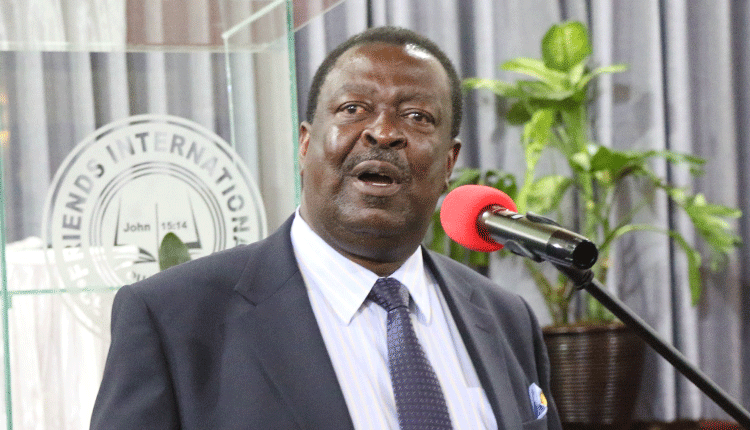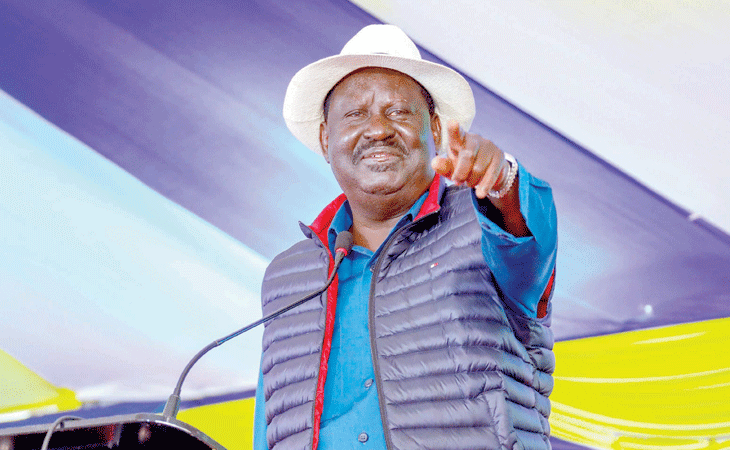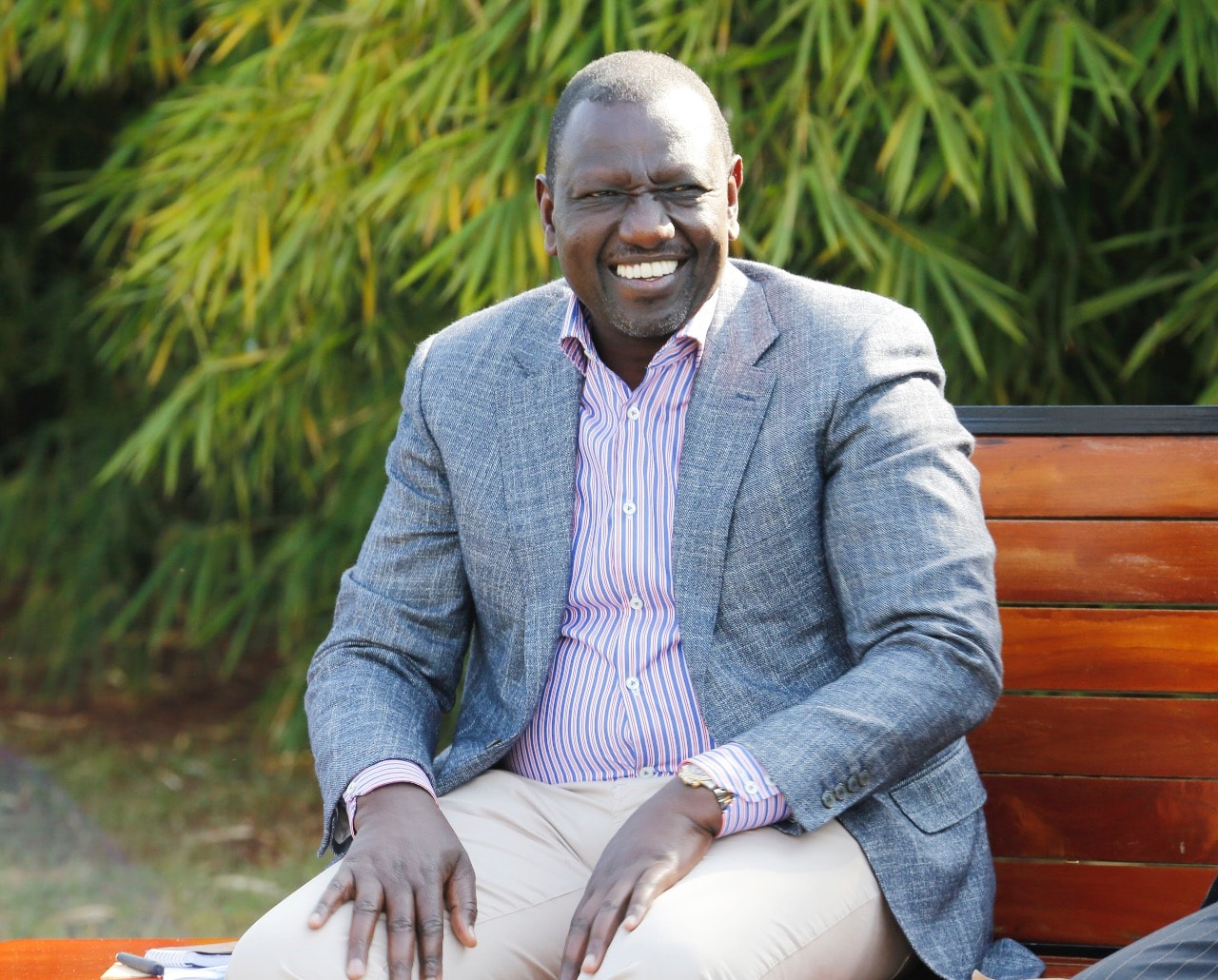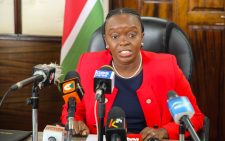Catholics want BBI report to go through debate
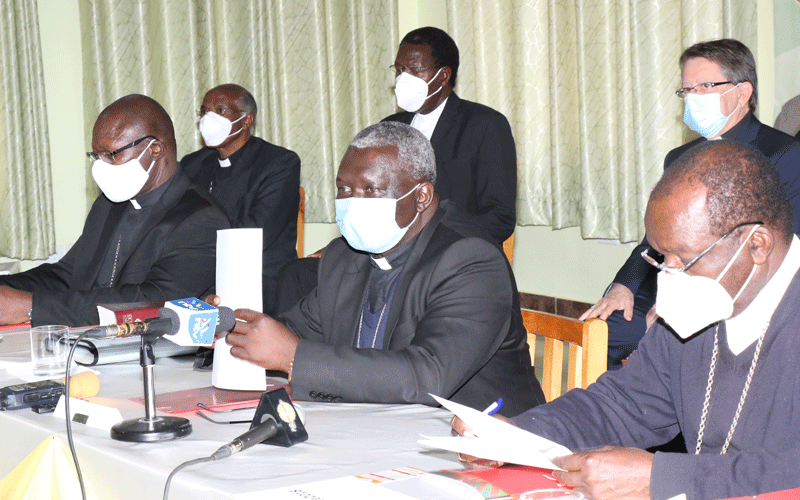
The Catholic Church yesterday fell short of rejecting the Building Bridges Initiative (BBI) report, accusing its framers of seeking to entrench an imperial presidency and overburdening Kenyans.
In a move that is likely to embolden stakeholders agitating for amendments to the report before it is subjected to a referendum, the bishops who represent an estimated 7.5 million Catholics in Kenya also questioned the timing of the proposed constitutional changes coming at a time the country was battling the coronavirus pandemic.
Under the aegis of the Kenya Conference of Catholic Bishops (KCCB), the bishops, led by Rt Rev Philip Anyolo, insisted the document must be subjected to a robust debate and further amendments before it is subjected to a referendum.
The amendments, they said, should cover the Executive, Parliament, conduct of elections and the independence of police.
“In giving the President the power to appoint a Prime Minister and two deputies, there is a risk of consolidating more power around the President thereby creating an imperial presidency,” said Anyolo.
Anyolo who also doubles as the Archbishop of Kisumu said the church was opposed to some of the proposals calling for incorporation of divergent views.
The church cautioned against the proposed Kenya Police Council chaired by a Cabinet Secretary saying such a review would compromise the independence of the police and place it under the executive.
Further, they warned against the proposal to have political parties appoint members to the Independent Electoral and Boundaries Commission, terming it “dangerous”.
“This proposal will turn IEBC into a political outfit with partisan interests. The question will arise on how fair the elections will be,” added Anyolo.
The bishops who included Cardinal John Njue also poked holes in the proposal seeking to expand the Senate to 94 members from the current 67, and the National Assembly to 363 from the current 349 saying it will place a huge burden on the taxpayers.
“We do not want more government, but rather a better government, there is no reason why we should have such a large number of legislators,” said Anyolo.
On his part, the conference’s vice chair Rev John Oballa called on Kenyans to read and give their feedback on the document saying the government needs to allow divergent ideas in strengthening the report before the country could head for a referendum.
Position taking
“By its very nature, the report is a product of the Handshake which was born out of dialogue and consultation.
It is therefore of utmost importance, that this process moves on the path of dialogue and consensus building rather than position-taking,” said Oballa.
The bishops questioned the urgency to hold a referendum, wondering whether there was money to hold the exercise barely eighteen months to the next general election.
They instead argued that whatever resources available should be channeled towards containing the Covid pandemic which has already claimed more than 1,000 lives and brought the economy to its knees.
Independent Electoral and Boundaries (IEBC) recently stated that it will require at least Sh14 billion to conduct a national referendum, drawing the ire of opposition leader Raila Odinga who maintains that the exercise requires only Sh2 billion.
The bishops suggested that proposals which are legislative be dealt with through parliamentary amendments adding that the same should be separated from the referendum questions.
“Can the country afford to spend its limited resources in the referendum when there is struggle in the education and health sectors,” he posed.
The church’s position is likely to embolden a growing number of Kenyans agitating for the document to be amended before it is subjected to a referendum.
They include the pastoralist communities, the evangelicals and the political class including governors and Members of the County Assemblies (MCAs).
Deputy President William Ruto and Amani National Congress leader Musalia Mudavadi have been leading calls for amendments to the constitution to address various issues before it is subjected to the referendum.
But President Kenyatta and Raila have repeatedly appeared to slam the doors on any sweeping changes to the document.
In a tweet on Tuesday, Raila for instance ruled out any significant amendments to the document saying there was little being brought to the table.
He noted that there is little likelihood that new ideas will be incorporated into the document save for some “corrections” to reflect some concerns.
“Except for editorial work to make it explicit on demands by various groups where it sounds vague or general, as is the case with the issues of pastoralists,” he said in a tweet.
Uhuru and Raila are keen to avoid a contested referendum that could hurt their national unity efforts and slam the brakes on their radical governance reforms ahead of the 2022 polls.
With this, a political supremacy battle is brewing pitting the president and Raila on one side, and Ruto on the other side, with each camp trying to take credit for every step in the process.
With some of the interest groups threatening to oppose the report if their demands are ignored the two handshake principals are at crossroads on whether or not to accede to the demands.
Ruto for instance is critical of at least five proposals in the document, including the expansion of the Executive, appointment of IEBC commissioners and the Judiciary Ombudsman.
He has asked the proponents of the BBI to initiate an open and honest discussion on the question of inclusivity to bring on board the millions of poor, unemployed Kenyans who have been bogged down by the ravages of Covid-19.
